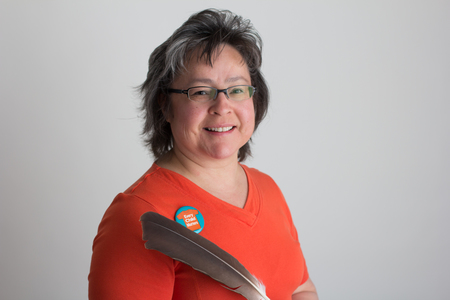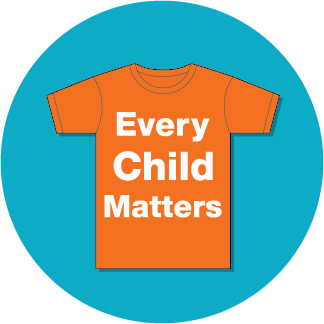At six years old Phyllis (Jack) Webstad left her grandmother’s home in Stswecem’c Xgat’tem First Nation to attend her first day of boarding school. Like many other children her age, she was ecstatic. Vivid in her memory is the orange shirt she had picked out with her grandmother for that day.
“Bright and exciting,” she says. “Just like I felt to be going to school.”
But when Phyllis arrived, she was stripped of her clothing and barred from seeing her family. Phyllis is one of 150,000 Indigenous and Métis children who went to residential school. This mandatory, live-in education system was initiated by the Canadian government to separate Indigenous children from their parents and families in an attempt to disconnect them from their language, culture and spirituality. “Our feelings didn’t matter, we didn’t matter,” says Phyllis, of the conditions at residential schools.

In 2013, Phyllis started Orange Shirt Day—which falls on September 30—in honour of survivors of residential schools, to mark the day when many Indigenous children were taken from their families and into residential schools. For Phyllis, reclaiming the orange shirt is an opportunity to say that “every child matters” and to bring awareness to the intergenerational effects of residential schools.
In response to the Truth & Reconciliation Commission’s Call to Action #80 which came out in 2015, the federal government passed a legislation marking what used to be Orange Shirt Day as the National Day for Truth and Reconciliation and a federal holiday.
Orange Shirt Day offered an opportunity to create meaningful discussion about the effects of residential schools and the legacy they have left behind on survivors and their families. The National Day of Truth and Reconciliation continues this work and calls upon local governments, schools and communities to listen with open ears to the stories of survivors and their families and remember those who didn’t make it.

